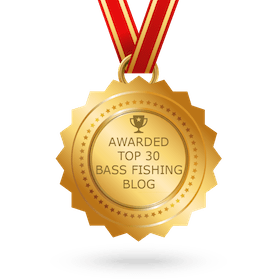By Frank Sargeant
The Fishing Wire
COMMENTARY:
A gillnet, like a handgun, is not inherently evil. The problem arises when it becomes the wrong tool in the wrong place at the wrong time.
The idea of permitting gill nets in North Alabama’s TVA lakes apparently has some appeal to somebody, otherwise it would not have been made into a bill, HB 258, and passed by the Alabama House of Representatives recently.
But thousands of recreational fishermen (and women) as well as homeowners and fishing/boating/resort industry execs in the affected areas are pretty much universally opposed to bringing this highly effective gear to the river lakes, which include Lake Guntersville, frequently cited as one of the top bass fishing lakes in the nation.The idea of permitting gill nets in North Alabama’s TVA lakes apparently has some appeal to somebody, otherwise it would not have been made into a bill, HB 258, and passed by the Alabama House of Representatives recently.
Not that the netters or the legislators who backed them propose to net bass commercially–state laws prohibit net harvest of gamefish. The targets would be shad, drum and other “rough fish” that some say are currently going to waste in the fertile waters of the big river.
But one issue that must surely concern anglers is the fact that gill nets do not work well for catch and release in many cases. They’re called “fish chokers” in saltwater, for good reason. They function via squares of mesh that slide over the head of a fish and then jam tight right behind the gill plates–they’re locked in place.
Getting a fish out of the mesh without killing it is not easy, particularly when it’s being done rapidly and/or at night, both of which conditions often apply in net fishing because that’s the nature of the fishery.
While the nets presumably would not be set around the grass beds where the majority of bass hang out for a part of the year, they might well be set around the bars, humps and other offshore structure where shad and drum are most abundant. And in the TVA lakes, this structure is also where huge schools of bass gather, both in the dead of summer and the chill of winter.
Crappies also gather in schools of hundreds around these offshore ledges in winter and again in July, August and September.
Both these species of gamefish would very likely be caught, occasionally in large numbers, as a by-catch of the nets, which can extend for hundreds of feet, forming a sort of “wall of death” around anything on the inside. While the commercial netters could not legally land them, they very likely would be killed in the process of being shucked out of the mesh–they’d wind up as buzzard bait along the shores. The bill as written has no limitations on net length or square footage–whole feeder creeks could be “stop netted” with a damming effect from shore to shore.
Gill nets of a given mesh size catch fish of a given size–it’s one of the reasons netters like them, because they let small fish swim through while trapping the larger ones. But the mesh that would be appropriate for a big gizzard shad would also be about right for a 1 to 2 pound bass or crappie, and the mesh that would catch a 5 pound drum or buffalo would also choke a 5 pound largemouth.
The bill also permits trammel nets, which catch pretty much everything that hits them–a large mesh net  is suspended in front of a small mesh net, and the fish “pocket” in the folds when they hit the net. Again, accidentally-caught gamefish would suffer.
is suspended in front of a small mesh net, and the fish “pocket” in the folds when they hit the net. Again, accidentally-caught gamefish would suffer.
At the last meeting of the Conservation Advisory Board in Guntersville recently, a commercial hook-and-line catfish angler complained to the board that Tennessee commercial fishermen are already taking unlimited quantities of catfish out of the river, and requested relief. How much worse will this issue become if gill nets are added to the mix?
Once this fishery gets underway and working fishermen have invested in their nets, it will be no easy matter to shut it down–in Florida, it took a constitutional amendment to get rid of gillnets in coastal use. The people of the state rose up and passed the amendment, and the fisheries have improved steadily ever since. But the state–i.e. the taxpayers–was put on the hook for millions to buy back nets from the netters. Allow this gear again in Alabama? Why?
Bottom line is, this is a bill that has benefit for very few in the state of Alabama, and a potentially enormous downside. It’s hard to imagine how any caring legislator could pass it, and if it manages to get past the Senate, how Governor Bentley, who reportedly enjoys recreational fishing, could sign it. But stranger things have happened in politics.
Anglers and conservationists would do well to keep an eye on this effort, and to bring it to a halt if possible by making their feelings known to their legislators. You’ll find contact info on state senators at http://www.legislature.state.al.us/aliswww/SenatorsPicture.aspx
(A word of advice–like most folks, the legislators take council better from a polite, well-reasoned letter, email or phone call rather than angry bluster.)
Frank Sargeant can be contacted at Frankmako1@outlook.com.
![]()












All the Lakes of the TVA System are for ALL to enjoy, including those who “net” in various manners.
The TVA Lakes are NOT just for the Commercial/Professional Bass & Crappie Organizations who make millions off their own commercial interests in fishing the TVA Lakes.
The TVA Lakes are NOT the possession of any single commercial or private entity or person, BUT for ALL to enjoy in their own legal manners!!!
April 17th, 2015
It is a proven fact, is it not, that “gill nets” kill fish. ALL the FISH caught in them. Unless the nets are hauled in fairly quickly, the fish drown, or suffocate.
ALL FISH…not just the “rough fish”. If you think this wont hurt the bass & other game fishing in TVA lakes, think again! If they are such a good idea, why did Florida prohibit them? Who shall benefit from these gill netting operations anyway?
You legislators had better look further into this NOW, as the state of Alabama does NOT have the money to “buy back” even one net should this become law & then get recinded. Let us look deeper, as something is
fishy about this whole thing…verrrry fishly indeed!
April 17th, 2015